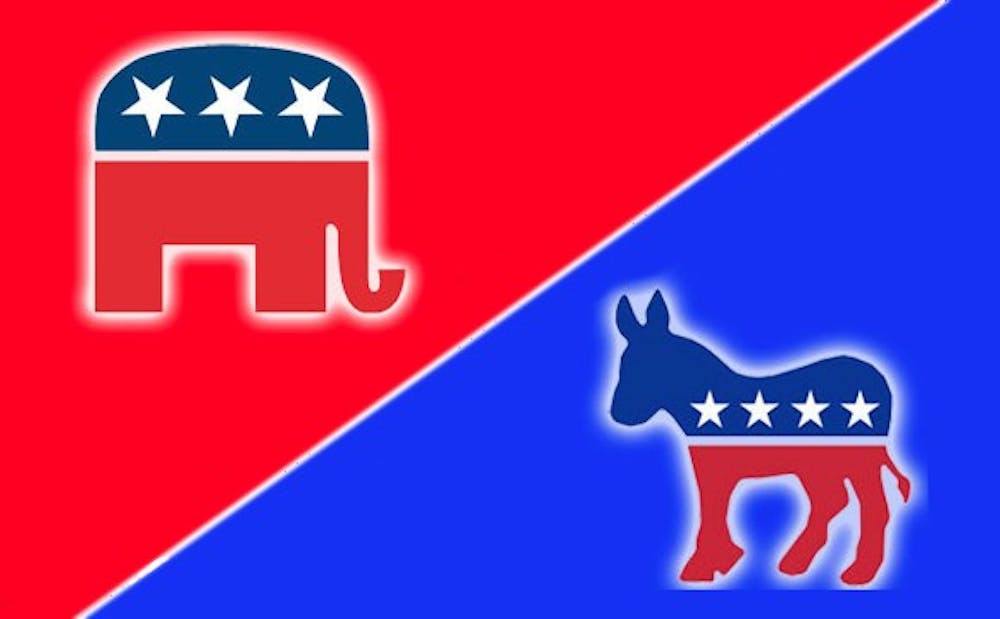Many people think they are right about politics, but by investigating who exactly feels superior about their views, Duke researchers found insights into the ongoing government shutdown.
A study published online Oct. 4 found that liberals and conservatives are equally susceptible to the idea that one’s own beliefs are superior to those of others. Although belief superiority was not more prevalent in any particular political party, those on extreme ends of the political spectrum were more prone to it. With the stalemate in Washington, D.C. and the government shutdown, these findings may provide one explanation as to why leaders may be reluctant to reach across the aisle.
“In trying to understand people who tend to display such belief arrogance, particularly on attitudes for which no objective answer exists, we discovered that people who hold more extreme views on the political continuum tend to believe most strongly that their beliefs are superior,” said Mark Leary, professor of psychology and neuroscience and co-author of the study.
The team administered online surveys to 527 American men and women, aged 18-67. Participants were asked for their perspective on nine contentious political topics. For each topic, they were asked to rate how confident they were that their beliefs were correct.
Although overall belief superiority was evenly split between liberals and conservatives, the study found that certain issues elicited more belief superiority from one side than the other. With government aid for the needy, the use of torture on terrorists and laws based on religion, liberals were more likely than conservatives to be sure of their beliefs. On issues such as affirmative action, taxes and voter ID laws, conservatives showed more evidence of belief superiority. On illegal immigration, abortion and health care, however, there was no significant difference in belief superiority between the two parties.
The study elucidated some aspects of political discourse that may be contributing to the stalemate in Washington D.C.
“Unfortunately, our society tends to reward people who take strong, uncompromising positions, and certainly they do well in the current political climate,” Leary said.
Taylor Imperiale, chair of Duke College Republicans and a senior, noted that overconfidence from both sides in Washington D.C. does not leave a lot of room for compromise.
"I don't know if that's because representatives are ideologically pure, or if that's because they're representing constituents who tend to fall on one side or the other," Imperiale said.
Diego Quezada, president of Duke Democrats and a junior, was not surprised by the study's findings.
“I would say that we all have this confirmation bias in which we all—whether a conservative or a liberal—like to see information that confirms your biases," Quezada said. "You tend to retain information that is more in line with your preconceived notions."
Despite our tendencies towards bias, Quezada was hopeful that belief superiority could be overcome by dialogue. He noted that there have already been some positive signs on campus.
“One thing we’ve started doing with the Republicans is the bipartisan discussion forum, in which members of both clubs come together and talk about issues," he said. "I feel that this could provide a common ground so we can know where our differences are.”
Senior Alina Wattenberg, president of Duke Political Union—a nonpartisan organization that works to promote political dialogue on campus—noted that the government shutdown and the current political climate in North Carolina have made more students critical of what seems to be a tendency on all sides of the political spectrum to uncompromisingly cling to party ideals and to disengage from open, flexible political debate.
"Having strong political beliefs does not necessitate silencing or ignoring opposing viewpoints," Wattenberg said. "In fact, it is often through discussions with others of a different political orientation that we are able to more fully develop our own political understanding."
Leary added that dialogue about the costs of belief superiority might help us overcome the stalemate in Washington, D.C.
“Instead of valuing uncompromising certainty, we should view it as a sign of narcissism and being out of touch with reality," he said. "Just a little intellectual humility would go a long way toward compromising and trying to find a middle position.”
Get The Chronicle straight to your inbox
Signup for our weekly newsletter. Cancel at any time.

